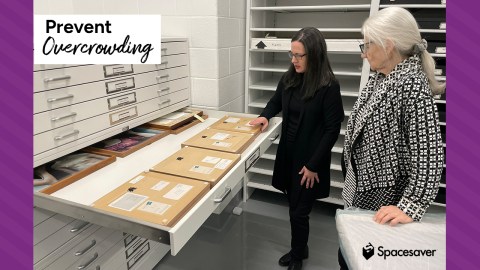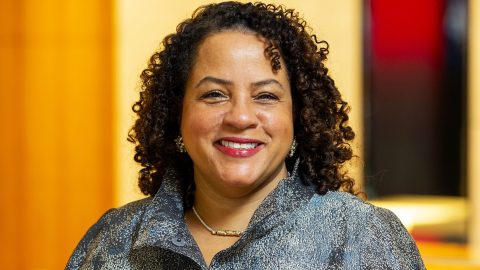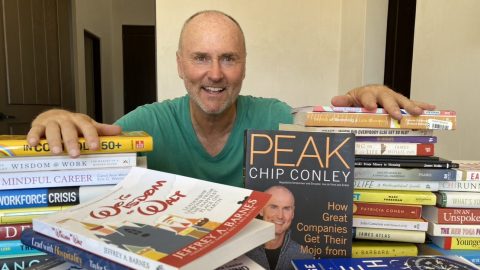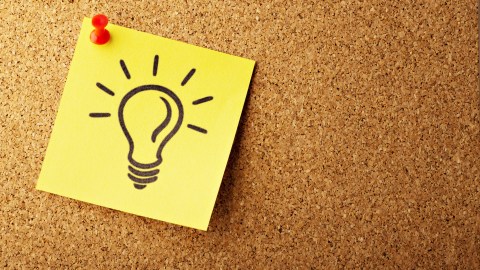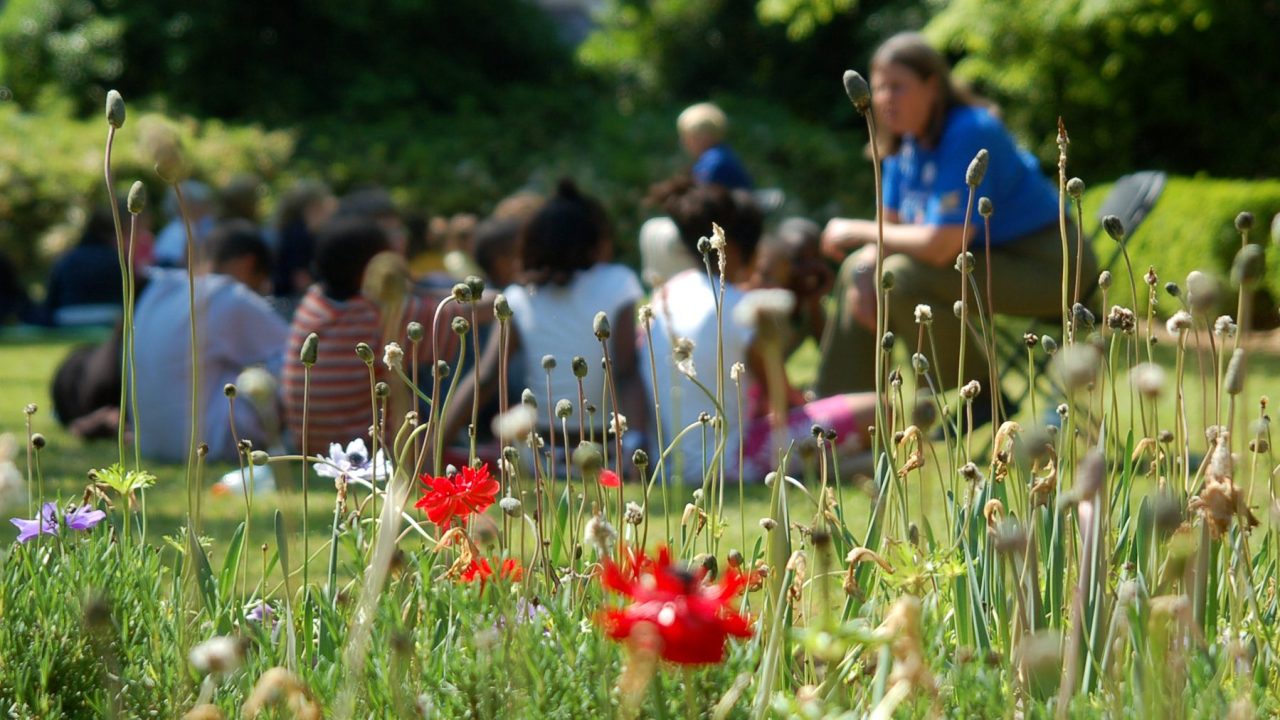
“Bad libraries build collections. Good libraries build services. Great libraries build communities.”
Libraries are often lauded for going beyond their expected role of loaning out books, developing themselves into one of the few safe havens and “third places” (social environments separate from the home and the workplace) in their communities.
One library system leading the way on this, designing programs with social impact top of mind, is the Richland County Public Library System in Columbia, South Carolina. Comprised of thirteen libraries serving a population of over 416,000 people, the Richland Library System employs 276 full-time and 84 part-time staff members.
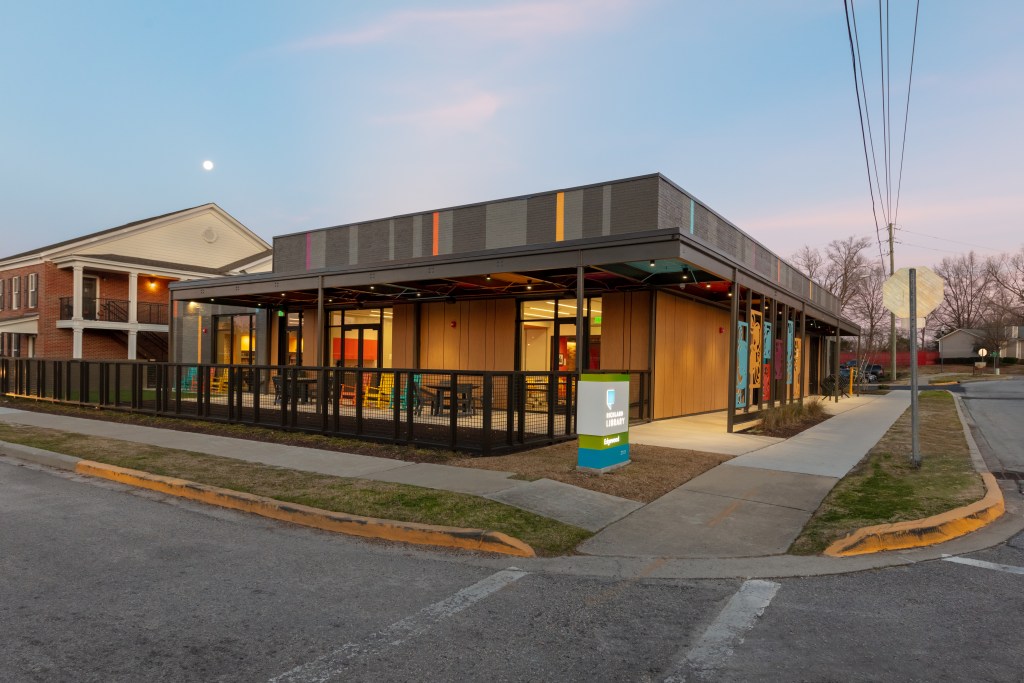
One of those staff members, Sharita Sims, never imagined working in a library. As a social worker, the thought of building her career in one never occurred to her, but one day, as she scrolled through her local library’s website looking for a book, she saw a job posting for a social worker position. “It had to be fate,” Sharita said. “I love this library. I used to come to this library as a little girl with my father, who has since passed away. He used to bring me here for story time and when I had book reports back when it was the Dewey system.”
In 2016, she was the second person to join the social work department at Richland Library. She’d take phone calls or in-person visits from library patrons, helping them navigate services like FAFSA, legal assistance, veterans’ benefits, SNAP, and housing programs. Six years later, due to growing community need and her department’s success, it had grown to six employees.
While libraries have long been hubs for community programming, a social work department is still not the norm. But Richland Library, as Sharita explains, prides itself on its innovation. Staff regularly form special cross-departmental teams for community needs like elections and online schooling. When the pandemic hit and the library shuttered its doors to the public, twenty-five employees banded together to form a public health team providing trusted information during a period drenched in uncertainty.
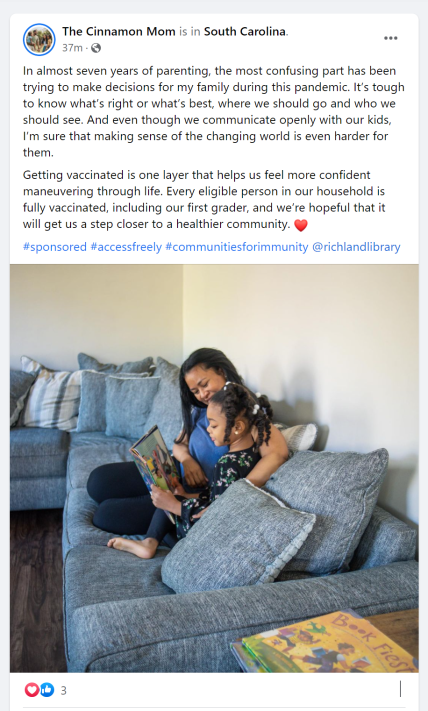
With libraries holding a high degree of public trust (similar to museums), Richland Library’s public health team felt a heavy responsibility to provide objective and vetted information to their patrons. They scoured CDC guidelines on how to answer questions about viruses. The marketing team enlisted the help of local social influencers long embedded in their community, like Tashenna Ticer of the parenting blog The Cinnamon Mom. Richland staff members also wrote their own blog posts about pandemic topics, starting with a post in the first weeks of shutdowns called “Pandemic Parenting.” Dozens of blog posts later, and two years down the road when businesses, schools, and other institutions were deliberating what COVID policies and procedures should stay and go, library staff continued to address lingering questions its patrons had with posts like “How to Talk to Your Kids About the Pandemic.”
When the Communities for Immunity grant opportunities were announced, the library’s grants team immediately drafted an application, because, as Grants Manager Sara Jane Salley said, “A lot of what they were asking we were already doing.”
With the funding from this successful application, the public health team expanded their existing efforts into more ambitious initiatives. They hosted a virtual town hall moderated by Fraendy Clervaud, a morning news anchor for Good Day Columbia on the local FOX network, where 566 residents tuned in. A panel comprised of an epidemiologist, internist, pediatrician/psychiatrist, and family physician all fielded questions on the safety behind getting a vaccine, including why children should receive the vaccine and what it meant to take the vaccine while pregnant.
Richland Library’s marketing team also bought their first-ever streaming radio spots on Spotify for three different campaigns focused on Black men between eighteen and thirty-four. Local storyteller and stage performer Darion McCloud voiced some of the ads, saying, “Making the decision to get my COVID-19 vaccine wasn’t easy. I had lots of questions. Richland Library had answers.”
Richland Library also partnered with Cooperative Health—an agency dedicated to finding and providing services for those uninsured, underinsured, or having difficulty navigating their insurance—to host fourteen vaccine clinics at three different library locations.
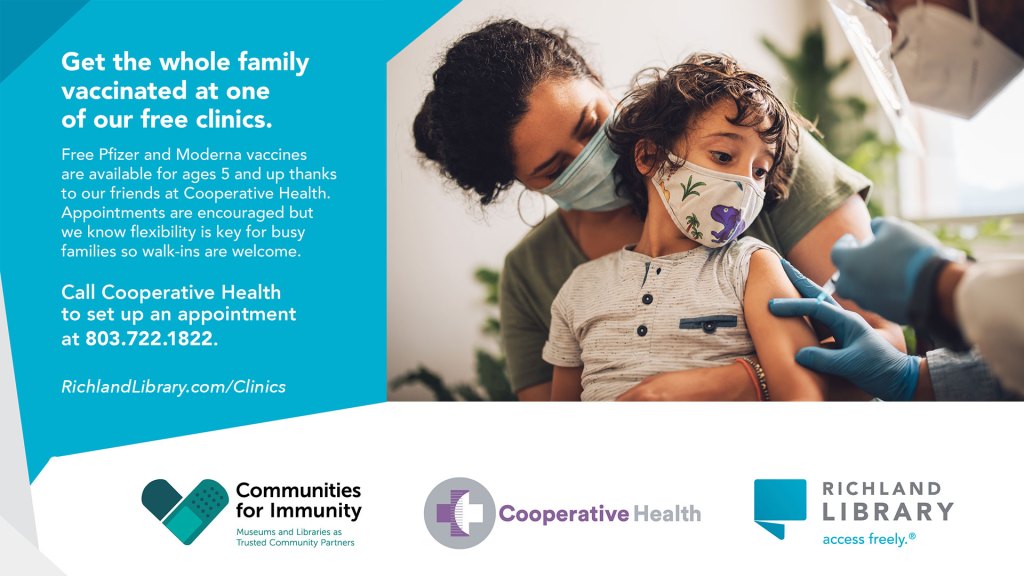
While the vaccine clinics have come to an end, the partnership has continued and evolved. Now, every Thursday, Cooperative Health sets up shop at the central library location to host a virtual health care center. Patrons can come in and find help connecting with healthcare providers for everything from getting blood pressure checks to finding insulin meters and locating mental health services.
The library’s community outreach work has stretched beyond public health. In January 2019, when a local public housing complex suffered multiple gas leaks, resulting in the death of two residents and the evacuation of more than four hundred people overnight, the library became a source of hope. Staff helped residents navigate having their lives uprooted by connecting them with agencies offering relocation assistance and groceries.
Many people had only begun to settle from the impacts of this crisis when the pandemic hit. They were faced, suddenly, with housing and food insecurities. Library staff promised themselves they would continue to do what they could do. So, when the South Carolina State Housing and Finance Development Authority received $22 million from the U.S. Treasury for the Emergency Rental Assistance Program, the team of six worked to help those people apply to the county to get funding for their needs. They guided residents through the complicated filing processes, including helping locate tax forms and translating bureaucratic jargon.
Richland Library’s work continues with its next project on the horizon, Do Good Columbia, a community problem-solving workshop that brings seventy-five to one hundred community members together over two days to help brainstorm how to address and react to community issues once they arise, especially during emergencies. “Our community has had a lot happen in the past seven years,” Sara Jane shared, explaining that the end goal of Do Good Columbia is to create a more resilient future. During the workshop, those community members—ranging from local government employees, educators, and business owners to people experiencing housing insecurity or homelessness—will debate, plan, and create roadmaps for addressing some of the most pressing needs in Columbia.
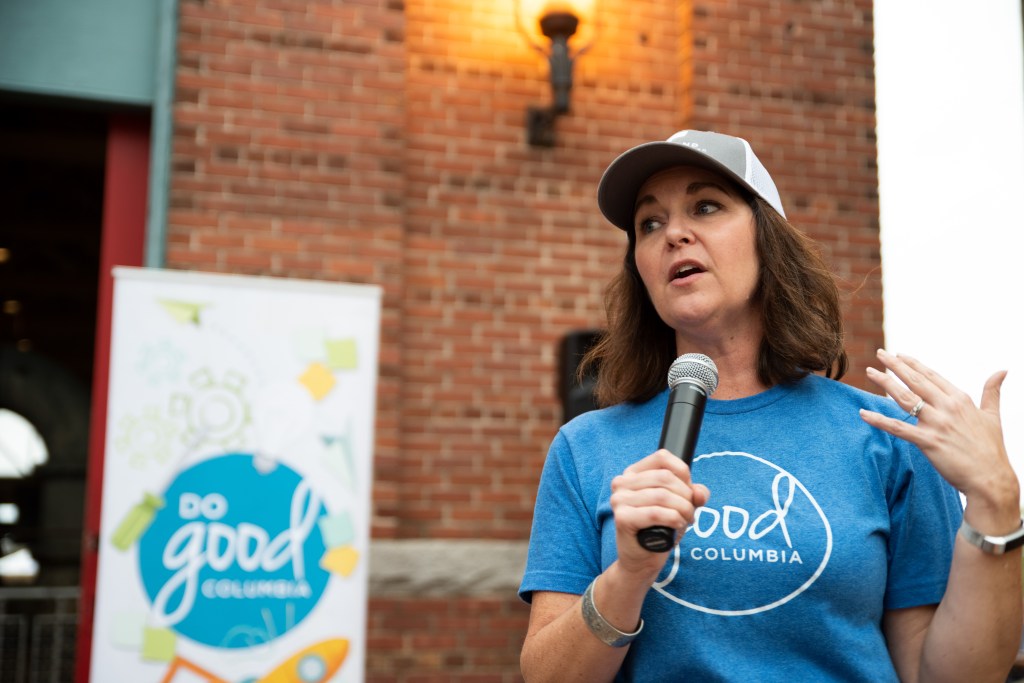
Other libraries across the nation have taken notice. Calls from Kansas and New Mexico have come in, asking how to implement social services at their own libraries. The most common question Richland Library staff receive is, “What does your typical day look like?”
“We say, ‘Well, it’s really like a box of chocolates,’” Sharita said. “There’s not a typical day, but there are a lot of good bites in the day.” Richland Library has open-sourced its projects, reports, and activities, including its Communities for Immunity final report detailing how the library approached its outreach efforts, so that other libraries can start with a basic foundation on how to plan and implement their own community outreach projects, possibly through social work departments. Sharita sees this openness and generosity as only right for a library, stating, “We are an information hub. It would be wrong to keep it to ourselves.”
Communities for Immunity is an initiative of the Association of Science and Technology Centers, Institute of Museum and Library Services, American Alliance of Museums, and the Network of the National Library of Medicine, with support from the Centers for Disease Control and Prevention, and in collaboration with the American Library Association, the Association of African American Museums, the Association of Children’s Museums, the Association for Rural and Small Libraries, the Association of Tribal Archives, Libraries, and Museums, and the Urban Libraries Council.





